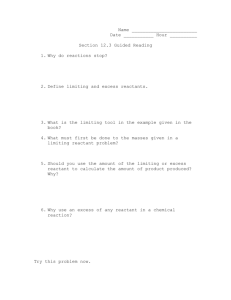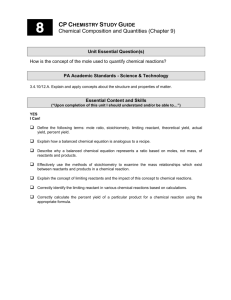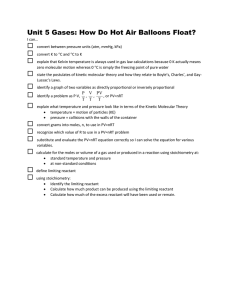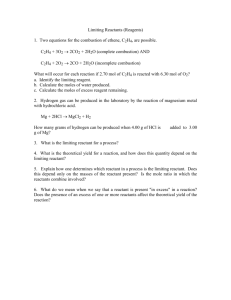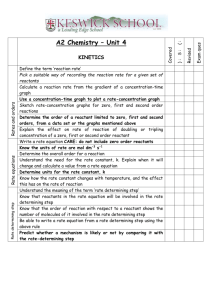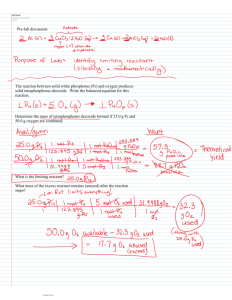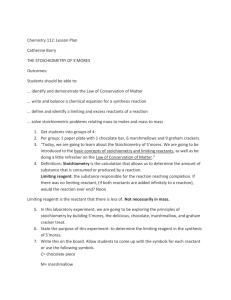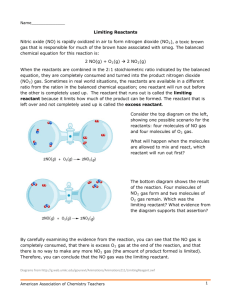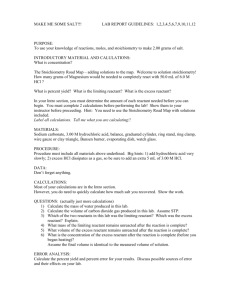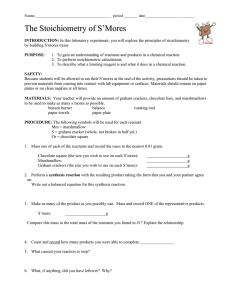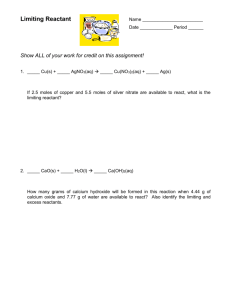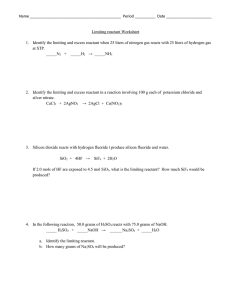doc file
advertisement
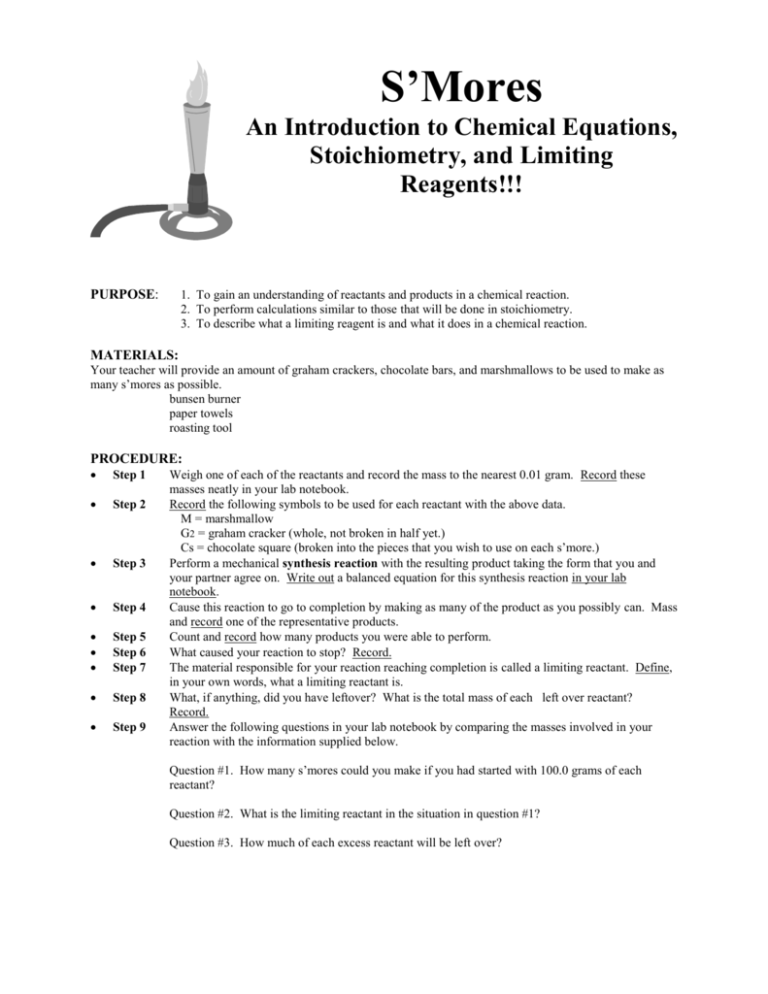
S’Mores An Introduction to Chemical Equations, Stoichiometry, and Limiting Reagents!!! PURPOSE: 1. To gain an understanding of reactants and products in a chemical reaction. 2. To perform calculations similar to those that will be done in stoichiometry. 3. To describe what a limiting reagent is and what it does in a chemical reaction. MATERIALS: Your teacher will provide an amount of graham crackers, chocolate bars, and marshmallows to be used to make as many s’mores as possible. bunsen burner paper towels roasting tool PROCEDURE: Step 1 Step 2 Step 3 Step 4 Step 5 Step 6 Step 7 Step 8 Step 9 Weigh one of each of the reactants and record the mass to the nearest 0.01 gram. Record these masses neatly in your lab notebook. Record the following symbols to be used for each reactant with the above data. M = marshmallow G2 = graham cracker (whole, not broken in half yet.) Cs = chocolate square (broken into the pieces that you wish to use on each s’more.) Perform a mechanical synthesis reaction with the resulting product taking the form that you and your partner agree on. Write out a balanced equation for this synthesis reaction in your lab notebook. Cause this reaction to go to completion by making as many of the product as you possibly can. Mass and record one of the representative products. Count and record how many products you were able to perform. What caused your reaction to stop? Record. The material responsible for your reaction reaching completion is called a limiting reactant. Define, in your own words, what a limiting reactant is. What, if anything, did you have leftover? What is the total mass of each left over reactant? Record. Answer the following questions in your lab notebook by comparing the masses involved in your reaction with the information supplied below. Question #1. How many s’mores could you make if you had started with 100.0 grams of each reactant? Question #2. What is the limiting reactant in the situation in question #1? Question #3. How much of each excess reactant will be left over?
